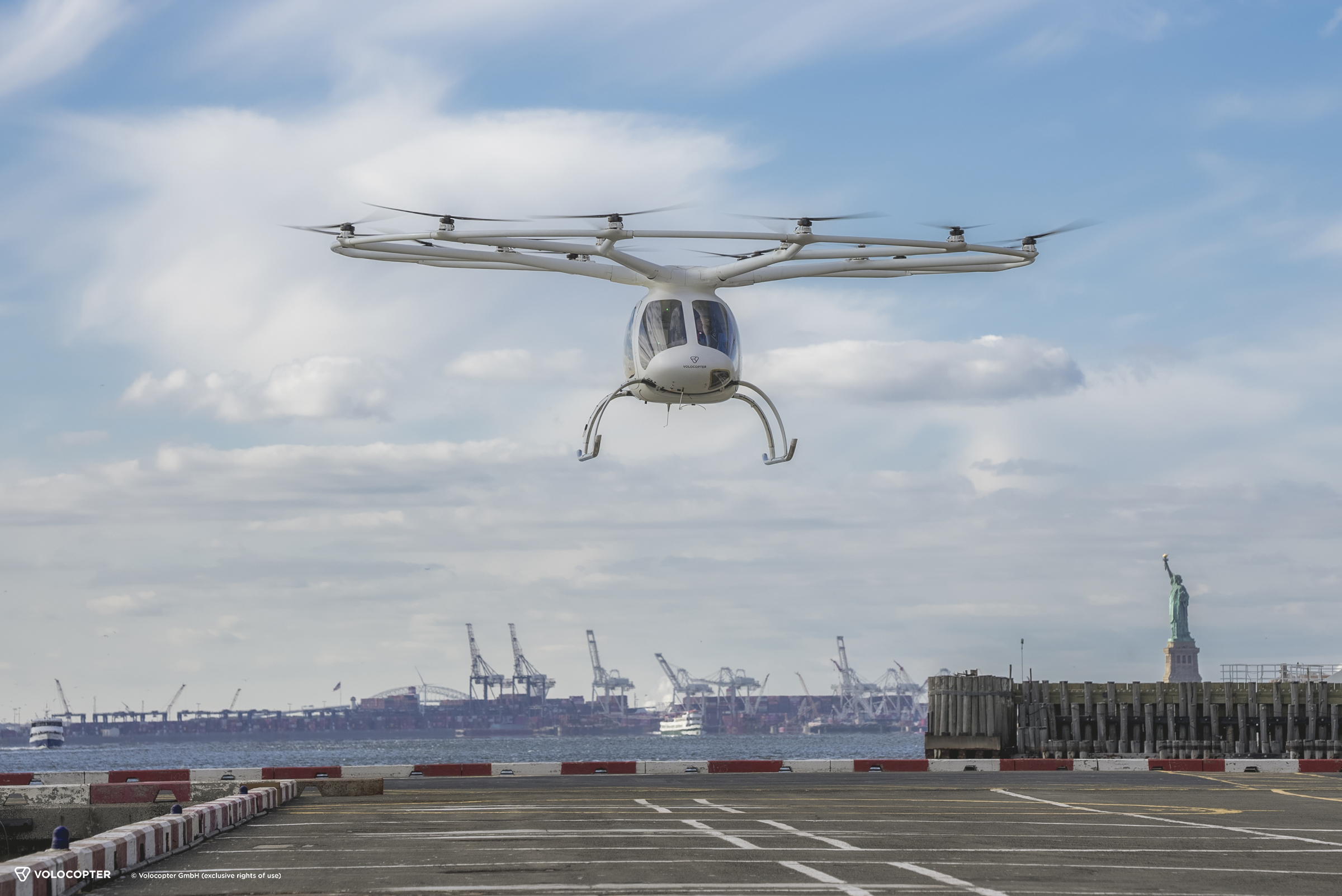Log-in here if you’re already a subscriber
The Federal Aviation Administration is on track to finalize pilot training requirements and operating rules for powered-lift aircraft by the end of this year, creating the framework necessary for winged electric vertical take-off and landing aircraft to launch commercial operations. Yet, open questions remain as to how the FAA will govern multicopter eVTOLs, particularly with respect to pilot qualification — underscoring the broader challenges associated with the agency’s approach to certifying novel aircraft designs.
Multicopters include eVTOLs like the Volocopter VoloCity and Alaka’i Technologies Skai, which rely on multiple propellers or rotors rather than a wing for lift in forward flight. While they technically meet the FAA’s generic definitions for both “rotorcraft” and “helicopter”, they bear little resemblance to conventional helicopters, which in the U.S. are certified under 14 Code of Federal Regulations Part 27 and 29.
Related: FAA closes in on key eVTOL rulemaking
In July, the FAA published a draft policy statement indicating that it intends to type certify multicopters under the special class process defined in 21.17(b), much as it is doing for winged eVTOLs. The FAA also confirmed to The Air Current that all helicopter and rotorcraft rules as written today apply to special class rotorcraft, an interpretation consistent with what the manufacturers of these aircraft have expected.
This gives multicopters an apparent advantage in the U.S. over winged eVTOLs, which have been the subject of a contentious FAA rulemaking process, as there are no pre-existing operating rules for powered-lift aircraft. However, the FAA — without elaborating on the details — acknowledges that there are “potential gaps” in the regulatory framework for special class rotorcraft, and is offering few specifics on when or how they will be addressed.
Subscribe to continue reading...Subscribe to Continue Reading
Our award-winning aerospace reporting combines the highest standards of journalism with the level of technical detail and rigor expected by a sophisticated industry audience.
- Exclusive reporting and analysis on the strategy and technology of flying
- Full access to our archive of industry intelligence
- We respect your time; everything we publish earns your attention


